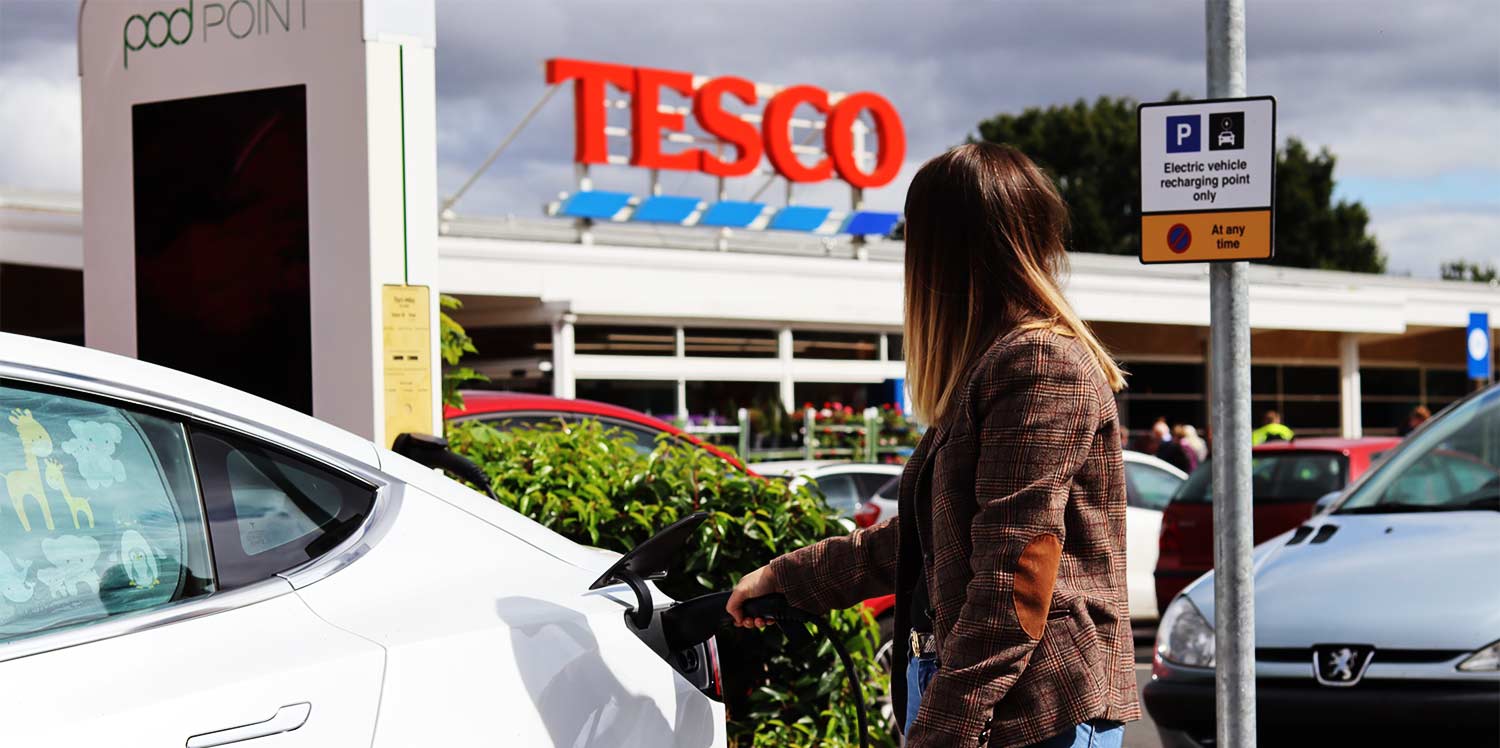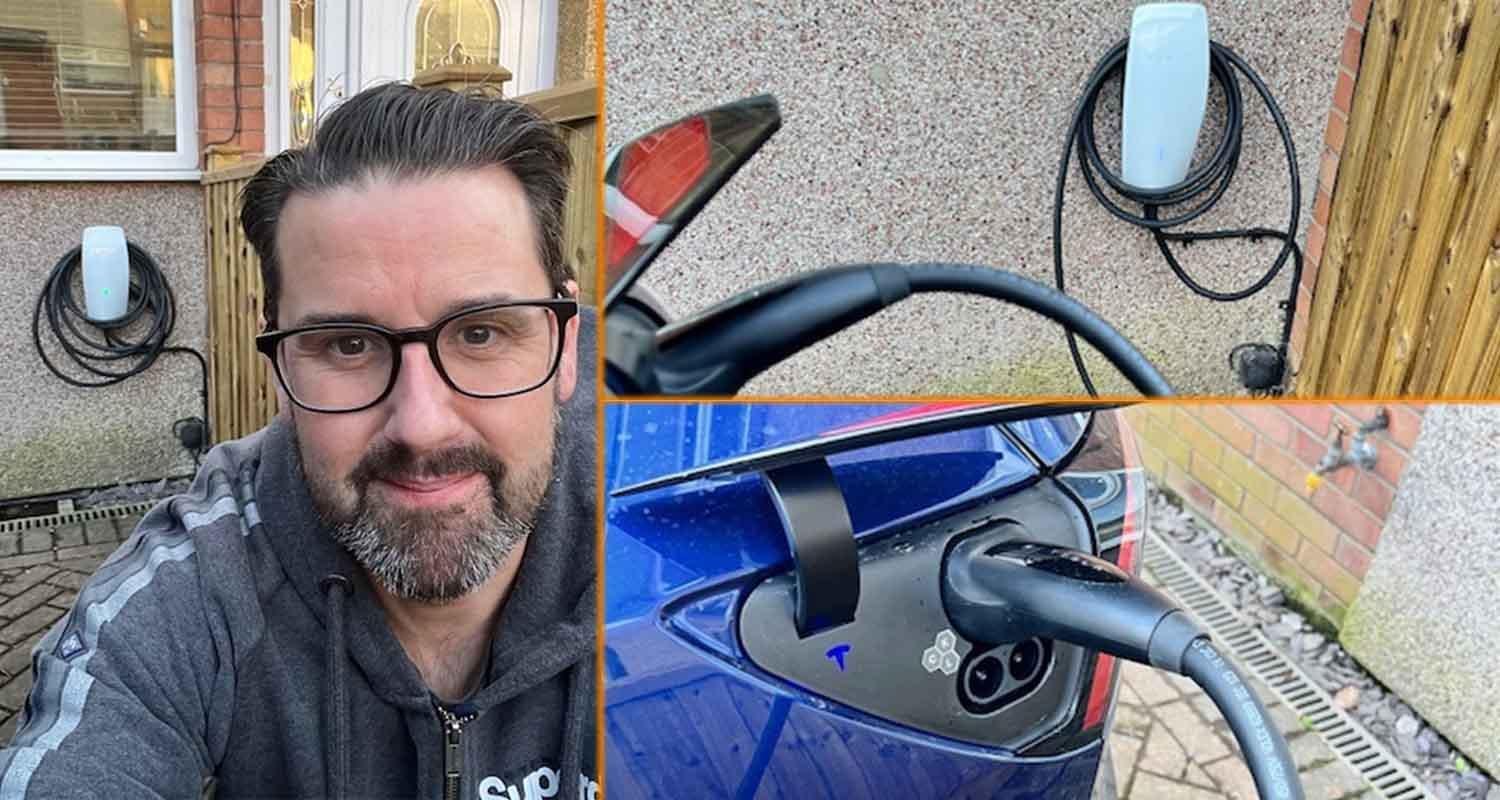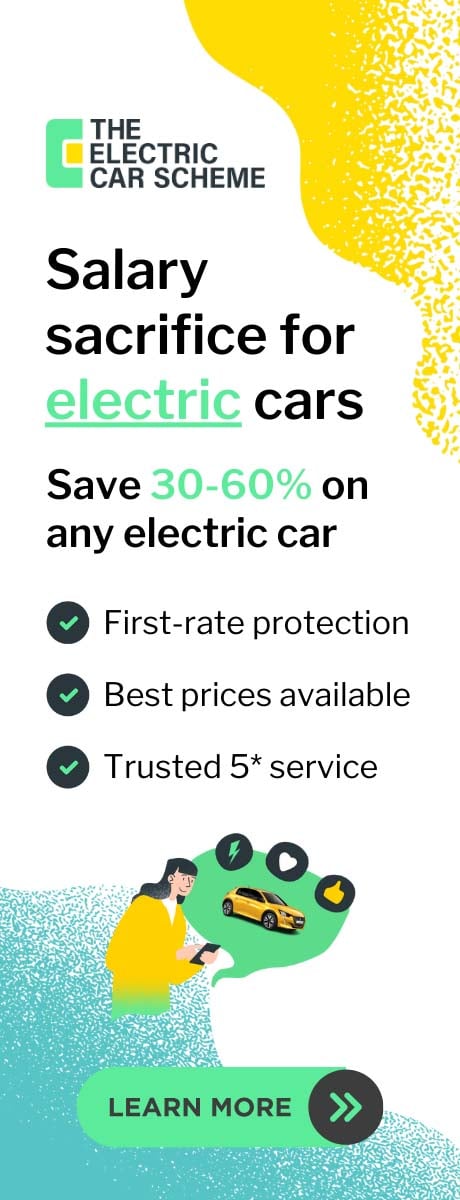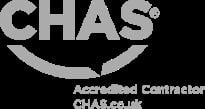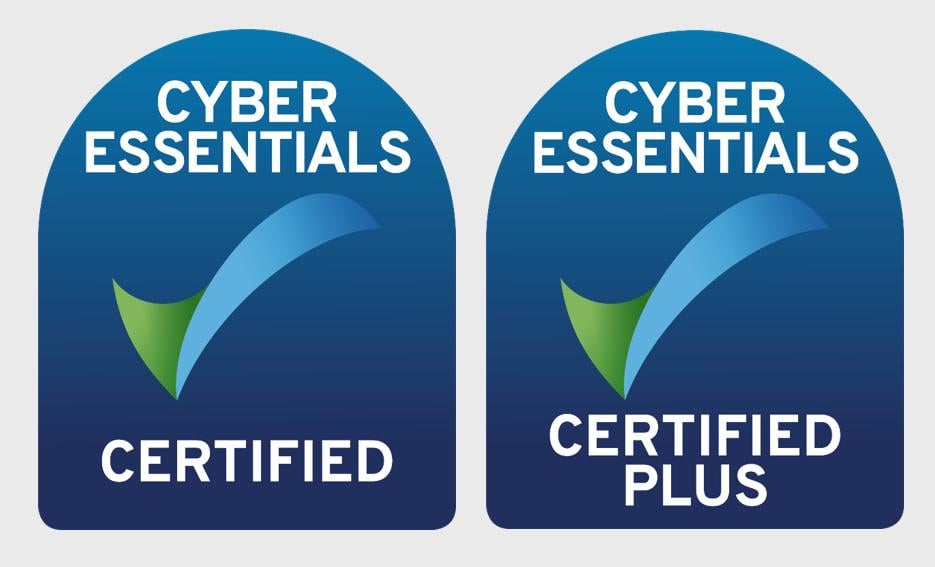Where can I charge my electric car for free?
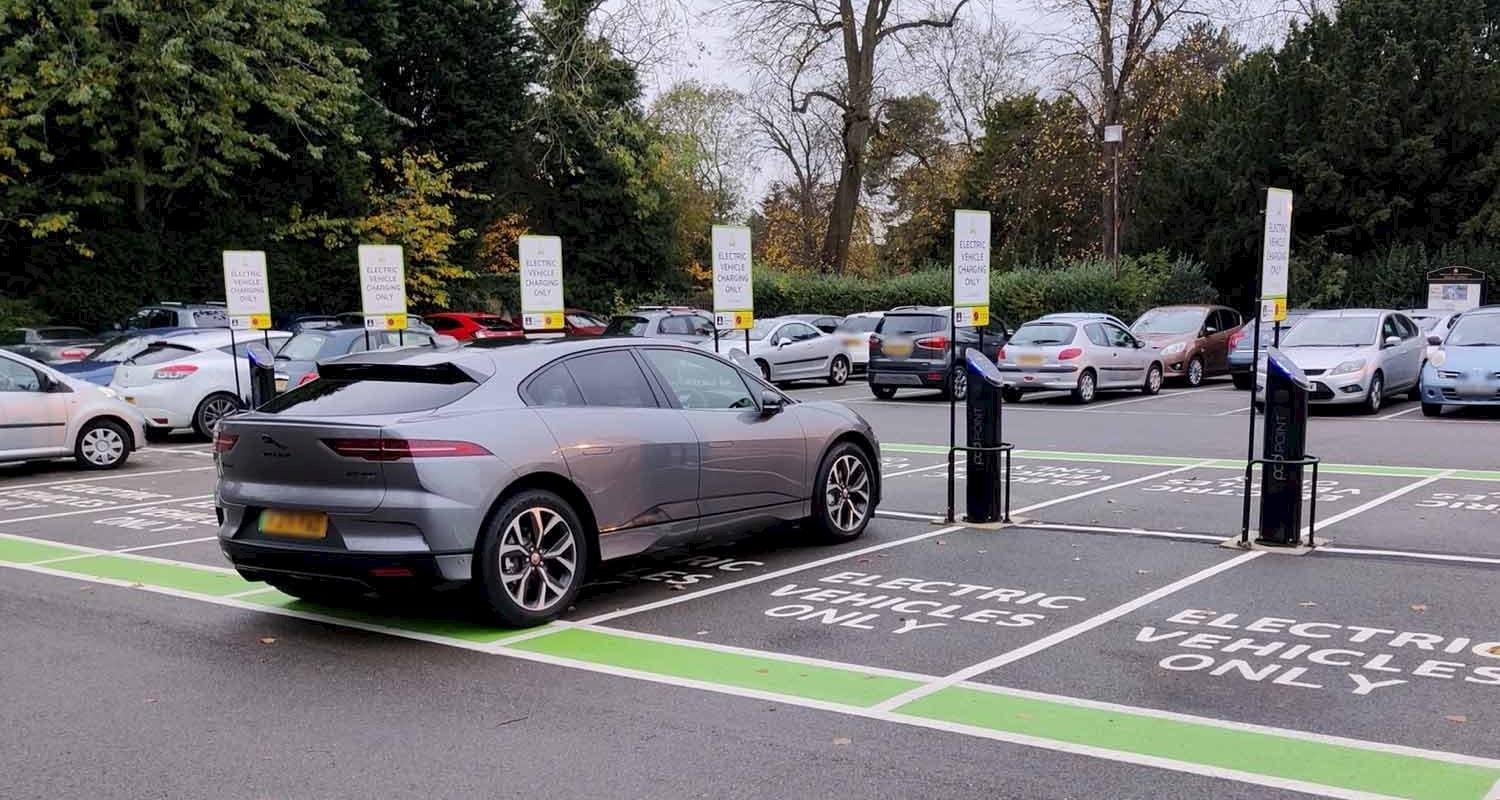
As electric vehicles become more mainstream, the window on being able to charge for free out on the road is closing, but there are still many options available.
EV owners might be surprised to find that as recently as September 2021, nearly 20% of the 25,000 electric car charging stations listed on Zap-Map are free to use.
One of the cheapest and easiest ways to charge
Charge your car whilst you're asleep and during your energy tariff's off-peak rate with a home EV charger.
What types of electric car charging points are there in the UK?

There are two types of charging, AC (alternating current) and DC (direct current). In most cases, AC tends to be slower and is used for what is called destination charging.
DC charging is commonly known as rapid charging and as the name suggests, is used to add a significant amount of charge in a short amount of time (usually 45 minutes or less).
Slow chargers (3.6kW to 7kW)
These slow chargers are often the type installed at homes or in public car parks and will typically take six to 12 hours to fully charge an electric vehicle from 0-100%.
Whilst up to 12 hours might sound like a long time to be charging, even overnight, it's important to keep in mind that charging from zero to full is extremely rare and would be comparable to running your petrol or diesel car down to an empty tank before filling it up again.
public slow chargers are typically untethered meaning that you will have need to have a charging cable handy in order to use it.
Fast chargers (7kW to 22kW)
As you would expect from the name, charge times start to speed up with the higher kilowatt rate provided by fast chargers. These are the kinds of chargers that will be found at destinations like supermarkets or car parks. A lot of businesses that have fast charge points offer complimentary free charging as an incentive to their customers. Charging times can typically range from one to six hours depending on the type of charging point.
Rapid charge points (50kW to 99kW)
Unlike slow and fast chargers, rapid chargers use direct current (DC) rather than alternating current (AC) to charge vehicles. Like the name might suggest, the result of using DC is that the charge point can charge a vehicle much faster, typically taking around 20 to 40 minutes (or the time it takes to grab a coffee and to stretch your legs) to charge an electric car to 80% of its battery capacity. Due to their high maintenance costs, finding a free-to-use rapid charge point is rare however, there are still some dotted around the UK, particularly in Scotland.
It's also important to note that whilst most modern electric cars support rapid charging, some older vehicles don't. You can find out if your vehicle supports rapid charging by finding it on our vehicle pages.
Ultra-rapid charge points (100kW and above)
These are the charging points using the fastest and latest technology to charge an EV and are also being installed in places like motorways or charging hubs. This cuts the charge time down to around 20-30 minutes but it's mostly likely these ultra-rapid points will come at a cost for users.
While the number of electric cars that support ultra-rapid charging is growing, it's important to keep in mind that a lot of electric cars on the market today are limited to 100kW or less.
Which types of EV chargers are free to use?
There are generally two different types of free charging electric car drivers can look out for - destination charging and rapid charging points.
Zap-Map and electroverse both have filters that can help you find free charging points.
Users of the site can use the filter functionality to search by payment and "free to use" to provide a map of all the free charge points currently across the UK.
As you can see from the image below, there are still a lot of free charging points listed, the majority of which are fast chargers (the pins in blue).
Destination charging points that offer free charging
Destination charging points typically add around six to 30 miles of range per hour of charge depending on the user's vehicle and are designed to charge an EV over a period of a few hours.
Pod Point network
Many of Pod Point's public charging point network is still free. There are currently no subscription fees or connection charges for using any of its chargepoints.
It already has destination charging locations at places like Lidl, Tesco, McDonalds and Premier Inn.
The easiest way to find a free charging point is to search by typing in the area you're looking to charge at and looking through the options to see which destinations offers free charging.
Tesla Destination charging network
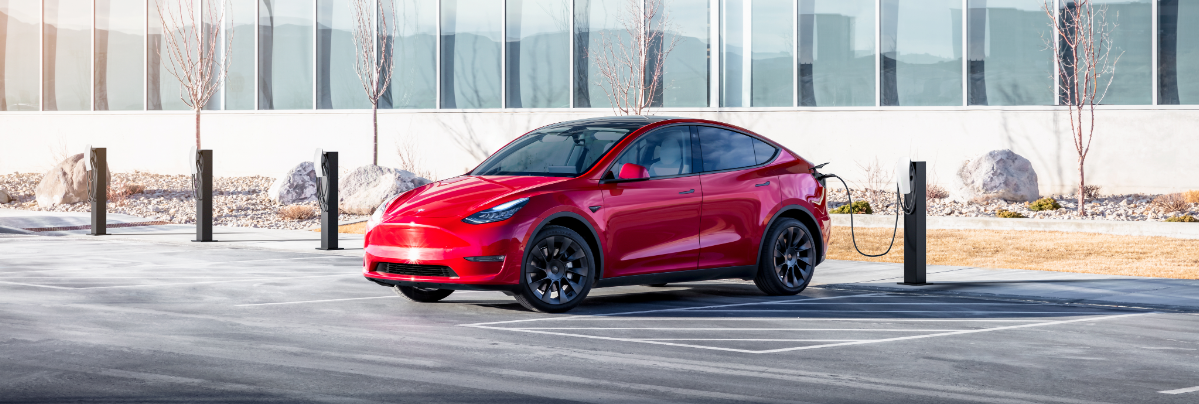
Tesla's destination charging network is spread across the UK and can be found at locations like hotels, restaurants and car parks.
All of these destination chargers are free to use by Tesla drivers that are customers at the business where the charger is located.
While the charger might be free, parking fees might apply separately, so it's worth checking this before arriving if possible.
Tesla's destination charging network is typically made up of 22kW fast chargers that are to be used while the car is parked for an hour or two to help top up the battery.
The destination chargers are separate to Tesla's Supercharger network.
You can find the closest Tesla destination charger by searching here. Type in the location you're looking for and make sure to only highlight the destination network when searching.
Local amenities
Supermarkets are probably the most reliable bet right now to find a free electric car charging point.
According to Zap-Map, there are over 1,000 free electric car chargers at supermarkets currently in the UK.
Combining a weekly shop and a fast charge is a winning combination and these supermarkets are hoping to attract loyal customers with a free battery top-up.
Tesco currently has the largest network of free fast chargers with over 600 points at 300 locations. This is a co-operation between Pod Point and Volkswagen to create one of the largest free public charging networks in the UK.
Pod Point has also been working with Sainsbury's, Lidl and Aldi to put in 22kW fast chargers that can be used by customers for free.
Compare destination charging costs
Find out what the cheapest public EV charging stations are by comparing the biggest destination charging networks side-by-side using our comparison tool.
Rapid charging points that offer free charging
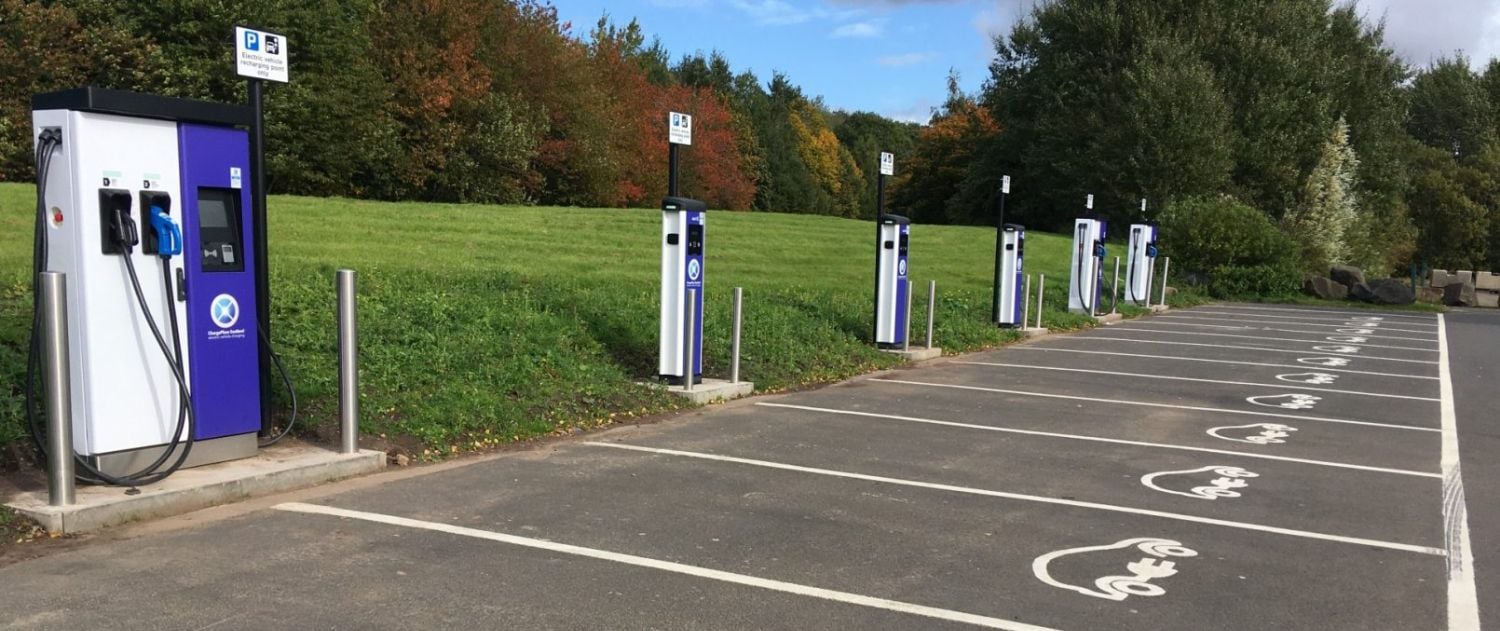
While these are becoming more difficult to find, there are still some places that offer free rapid charging.
ChargePlace Scotland
Scotland has been leading the way with electric vehicle charging infrastructure in the UK.
ChargePlace Scotland is owned by the Scottish government and has grown its network from 55 public charge points in 2013 to over 2,168 in 2022.
Network members can use the majority of the network for free and it's possible to view all the free rapid chargers by filtering through the results on the ChargePlace Scotland website.
Car dealerships
Nearly every main dealer will have a rapid charging point available. These charging points are needed for topping up demonstrator and customer vehicles, but it's certainly possible that it could be used for free if you were visiting the dealership.
Call or pop-in and ask, but it's probably not the most reliable choice when searching for a free rapid charge.
If you're buying your EV from a main dealer, it's worth asking when placing the order if you can use the charging point on site for free in the future.
Tesla Supercharger network
When the Tesla Model S went on sale in 2012, it came with unlimited Supercharging for free, but this then ended in 2017. So if you're an early Model S adopter, you can still enjoy using the Supercharger network for free forever.
However, Tesla does still offer customer deals that allow use of the network for some free Supercharging miles or it can offer charging at a heavily reduced rate.
The Superchargers are perfect for adding a lot of range in a short amount of time, with the ability to add around 172 miles in just 15 minutes.
Compare rapid charging costs
Compare the charging costs of the UK's most popular rapid charging networks using our rapid charging cost comparison tool,
Is there a way to find out the price per kW of a charging point before I travel to it?
There are multiple comparison sites available to help EV drivers find out the price of a charge before they travel.
Smart Home Charge
We have our own rapid and destination charging comparison tools. These have been created to compare the cost of charging networks side-by-side to see which one best suits your journey. Simply choose your vehicle, adjust the mileage dial and get a reflection on charging costs.
Electric Juice map
Octopus Energy's Electric Juice map has linked up multiple charging networks that can be used with one card and app.
Users can search across multiple networks and look at prices per kWh.
Zap-Map
Zap-Map has its own public charging calculator tool that can be used to estimate the cost of fully or partially charge your EV using the public network.


